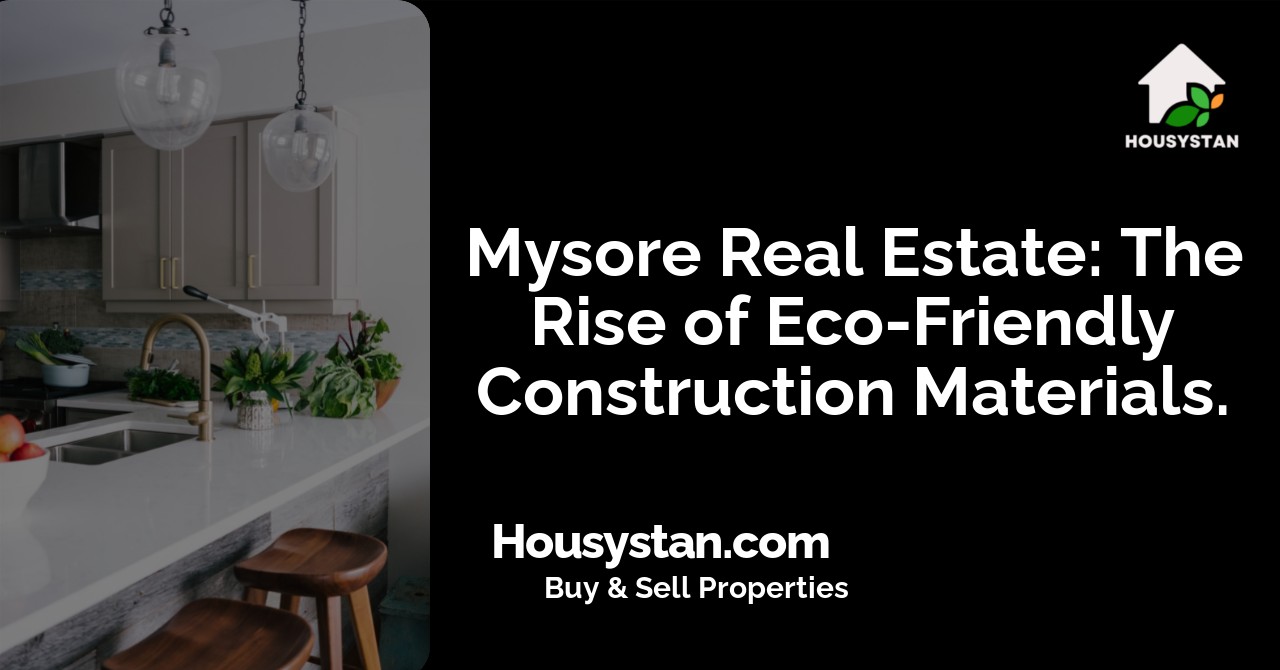Mysore Real Estate: The Rise of Eco-Friendly Construction Materials
Read latest blogs and articles from Housystan

The Information mentioned here was last updated on:
29/1/2026Mysore, a city renowned for its rich cultural heritage and scenic landscapes, is experiencing a significant transformation in its real estate sector. Over recent years, the demand for sustainable and eco-friendly construction materials has surged, positioning Mysore as a leader in green building trends across South India. This shift reflects both environmental awareness and the desire for healthier living spaces among homebuyers and developers in the region.
Eco-friendly construction materials, such as fly ash bricks, bamboo, recycled steel, and low-VOC paints, are gaining popularity in Mysore’s property developments. These materials reduce carbon footprints, conserve natural resources, and enhance energy efficiency, making them ideal for Mysuru’s evolving urban landscape. Developers are increasingly adopting green technologies like rainwater harvesting systems, solar panels, and advanced insulation, ensuring that new residential and commercial properties in Mysore are both energy-efficient and environmentally responsible.
One of the driving factors behind this shift is Mysore’s commitment to sustainable urbanization. Local authorities and builders are collaborating to implement building codes that encourage the use of green materials and support eco-conscious construction practices. This proactive approach not only preserves Mysore’s natural beauty but also improves the quality of life for its residents. Consequently, property values in eco-friendly neighborhoods are witnessing steady appreciation due to growing buyer interest in sustainable homes.
- Verified Tenants/Buyers
- Unlimited Property Listing
- Zero subscription/charges fee
For investors and homebuyers searching for properties in Mysore, choosing projects that utilize eco-friendly construction materials offers long-term benefits. These include lower utility bills, improved indoor air quality, and a reduced environmental impact. Furthermore, the city’s climate and abundant greenery make it an ideal location for incorporating sustainable design features that complement the local environment.
As Mysore continues to expand, the adoption of eco-friendly building materials sets a benchmark for future developments in Karnataka and beyond. By prioritizing sustainability, Mysore’s real estate market not only attracts conscientious buyers but also ensures a greener, healthier future for generations to come.